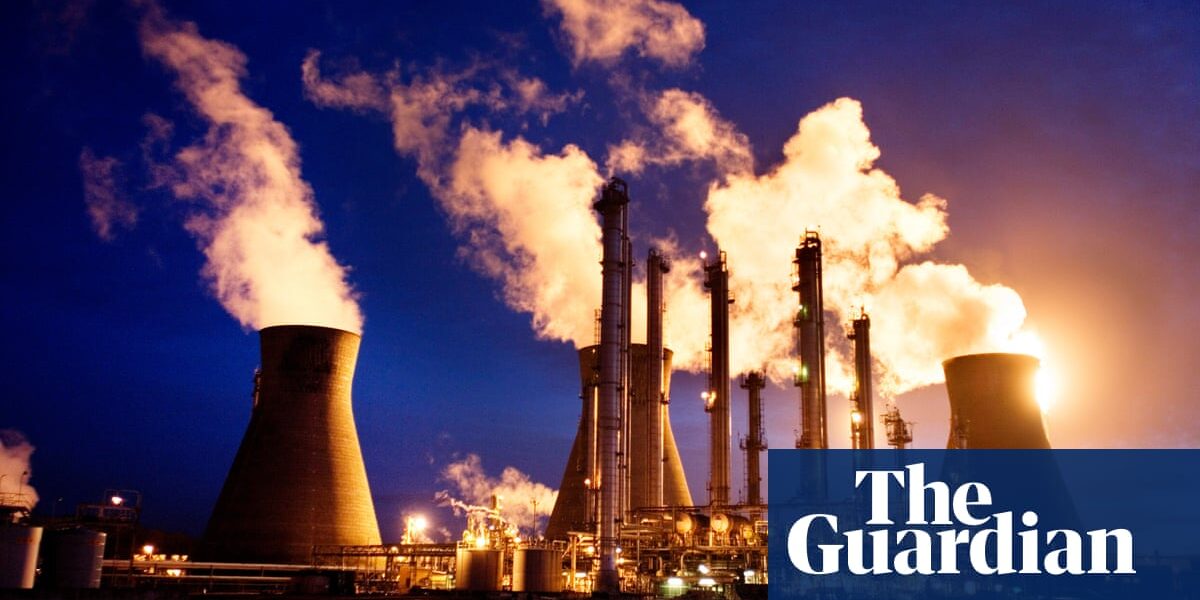Report finds that the world’s biggest oil companies are significantly behind schedule in reaching their emissions reduction goals.

In recent times, the majority of the biggest oil companies worldwide have made bold promises to combat climate change. However, a new report has revealed that these companies are not making enough progress in reducing their greenhouse gas emissions.
According to a recent report by the Carbon Tracker think tank, the plans of 25 top oil and gas companies do not meet the main objective of the 2015 Paris climate agreement, which is to limit global warming to a maximum of 2 degrees above pre-industrial levels.
Maeve O’Connor, an analyst at Carbon Tracker and co-author of a report, noted that companies around the world publicly proclaim their support for the Paris Agreement goals and their role in promoting the energy transition. However, a closer look shows that none of these companies are currently in line with the objectives of the Paris Agreement.
The researchers analyzed the companies’ plans for exploration and production, investments, targets for reducing carbon emissions, and policies for executive bonuses. They then used a scorecard to measure their alignment with the goals of the Paris Agreement.
The companies were given a letter grade ranging from A to H, with A representing alignment with the goals of the Paris agreement and H representing the greatest deviation, with practices and plans that could potentially result in a catastrophic increase of 2.4C in global temperature compared to pre-industrial levels.
According to the metrics used by the authors, all companies received a failing grade. While there are distinctions between companies, O’Connor pointed out.
BP, the company with the highest ranking, received a grade of D. The G grade was given to Saudi Aramco, Brazil’s Petrobras, and ExxonMobil, while ConocoPhillips, the sole recipient of an H grade, ranked the lowest.
Commentary was not readily accessible from BP, Saudi Aramco, Petrobras, ExxonMobil, and ConocoPhillips at this time.
According to the study, all of the companies evaluated, except for Chesapeake Energy, have intentions to enhance their production of fossil fuels in the near future.
According to the analysis, BP is the sole company with a target to reduce its fossil fuel production by 2030. Only three other companies – Repsol from Spain, Equinor from Norway, and Shell from the UK – have plans to maintain current production levels. However, ConocoPhillips has a goal to increase production by 47% by 2030 compared to its 2022 output.
Oil and gas companies are going back on their promises to address climate change, according to recent analysis. Shell and BP have both weakened their emission reduction goals, with ExxonMobil and Chevron making major acquisitions in the Texas oil industry. These deals are some of the largest in the country’s history.
Bypass advertisement for newsletter.
after newsletter promotion
Prior research has indicated that major oil companies’ strategies for addressing climate change are inadequate in meeting international climate targets. A 2023 evaluation from the research and advocacy organization Oil Change International also supports this finding. According to David Tong, who oversees global industry campaigns at Oil Change International, both studies highlight the need for government intervention in phasing out the oil and gas industry.
He declared that an arsonist who promises to start fewer fires would not be trusted, and similarly, people should not trust climate pledges and plans made by major oil and gas companies.
The release of the report coincided with the yearly Cera Week in Houston, where leaders in the oil and gas industry have been criticizing initiatives and schedules for phasing out fossil fuels.
According to Carbon Tracker, their latest report has the potential to hold executives responsible.
According to Mike Coffin, who is in charge of oil, gas, and mining research at the thinktank, this updated scorecard allows investors to compare companies’ actions with those of their competitors. They can also challenge company leaders about their strategies for dealing with the energy transition and tackling climate change.
Source: theguardian.com

